In questa lezione imparerai / In this lesson you will learn:
- Il plurale dei nomi / The plural form of the nouns
- Le stagioni / The seasons
- Verbi “andare”, “venire”/ Verbs “to go”, “to come”
- L’espressione “mi piace” e “non mi piace” / How to express “I like” and “I don’t like”
- Preposizioni / Prepositions
- Vocabolario estivo / Summer vocabulary
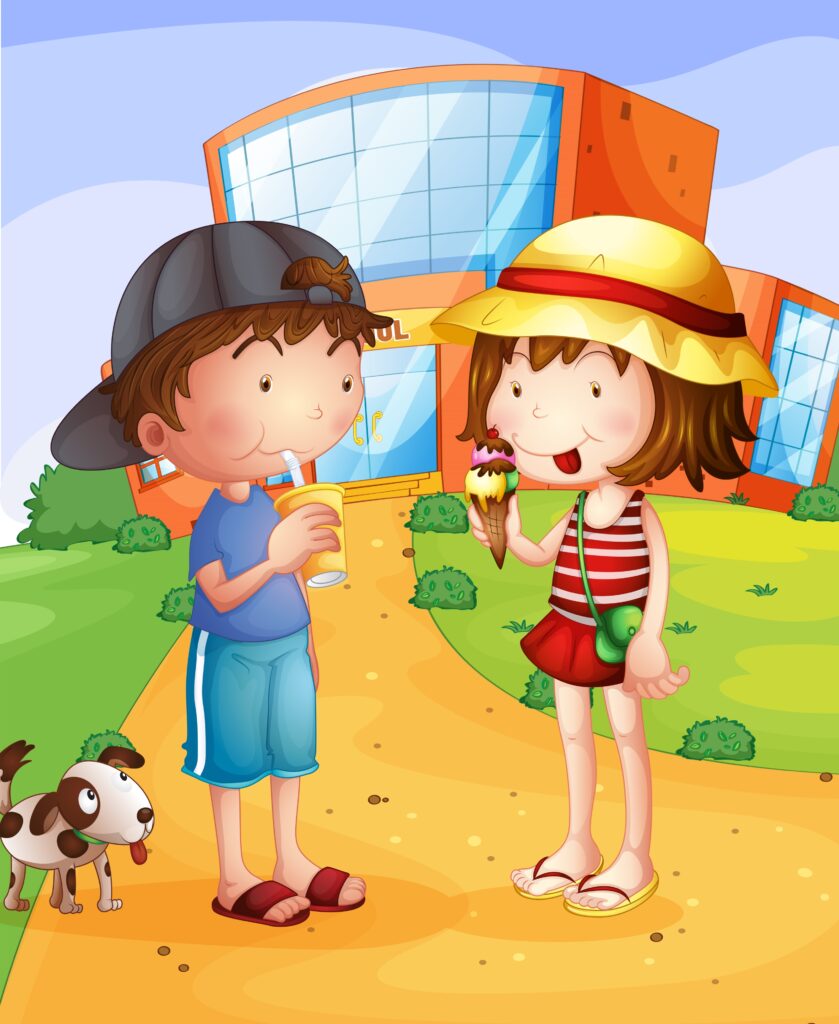
È estate e fa caldo. La scuola è finita, finalmente! Paolo e Francesca sono felici e parlano delle vacanze estive.
– “Ah! L’estate è la mia stagione preferita perchè la scuola è chiusa! La scuola non mi piace. Fra pochi giorni partiamo per le vacanze. Francesca, dove andrai in vacanza quest’anno?”
– “Vado in campeggio con la mia famiglia in Toscana. Mi piace il campeggio! La notte mi piace dormire in tenda e guardare le stelle! E tu, Paolo, dove andrai in vacanza?”
– “Io vado al mare in Sicilia. Amo il mare! Mi piace il sole, nuotare, giocare con la sabbia e mangiare tanti gelati!”
– “E il tuo cane, Lillo, viene con te?”
– “Sì, Lillo è parte della famiglia, viene sempre in vacanza con noi.”
– Buone vacanze, allora!
Scegli la parola giusta tra parentesi / Choose the correct word in brackets
- In estate la ……… è chiusa (casa, scuola, campagna, vacanza)
- Mi piace andare al ……….. in Sicilia ( sabbia, vacanza, mare, montagna)
- Non mi piace …………. in tenda (Toscana, estate, parlano, gelato, dormire)
- Dove vai in ………? ( mare, stagione, vacanza, famiglia)
- Mi piace ……………. le stelle (guardare, nuotare, giocare, mangiare)
- Luigi viene in vacanza …………..(con noi, a noi, per noi, in noi)
- Il mio cane ………l’acqua (nuota, va, ama, viene, parla)
Le stagioni / The seasons
Qual è la tua stagione preferita? / What is your favourite season?
Inverno
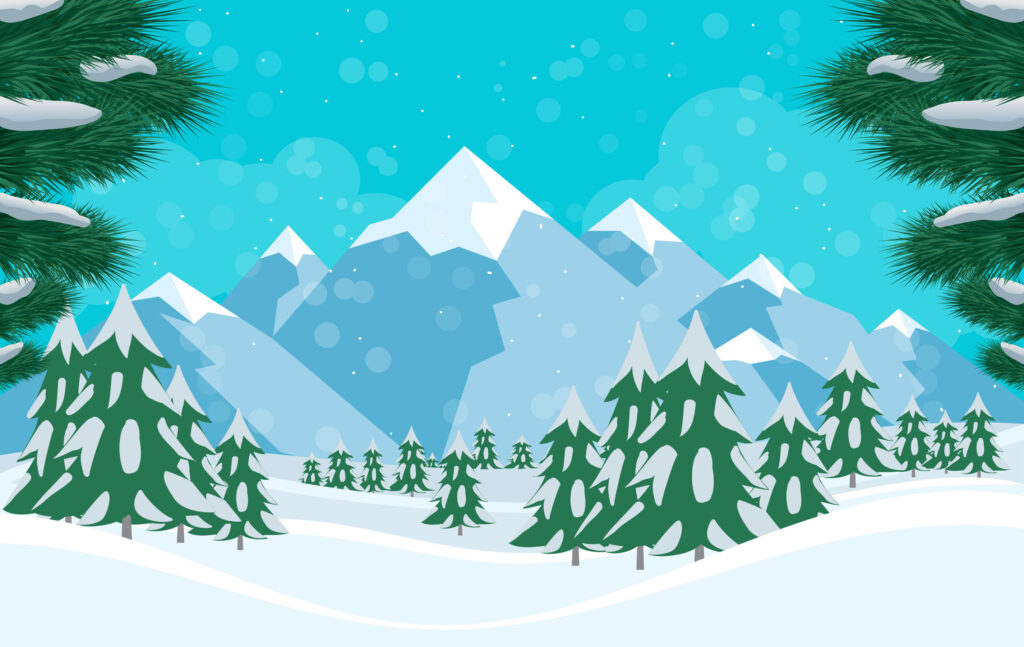
Primavera
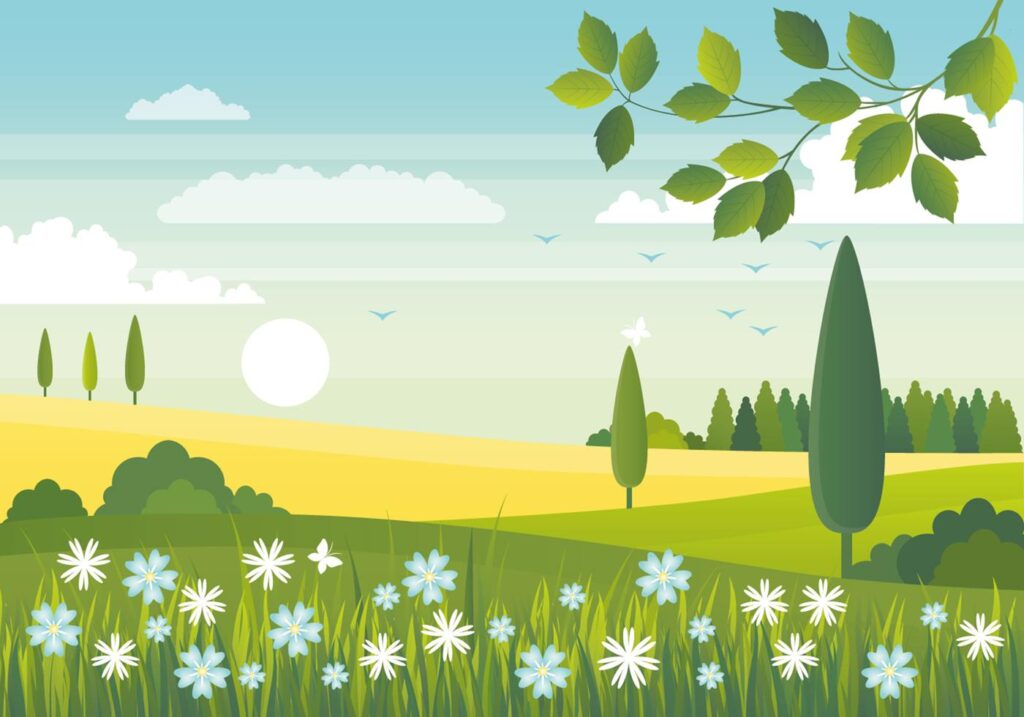
Estate
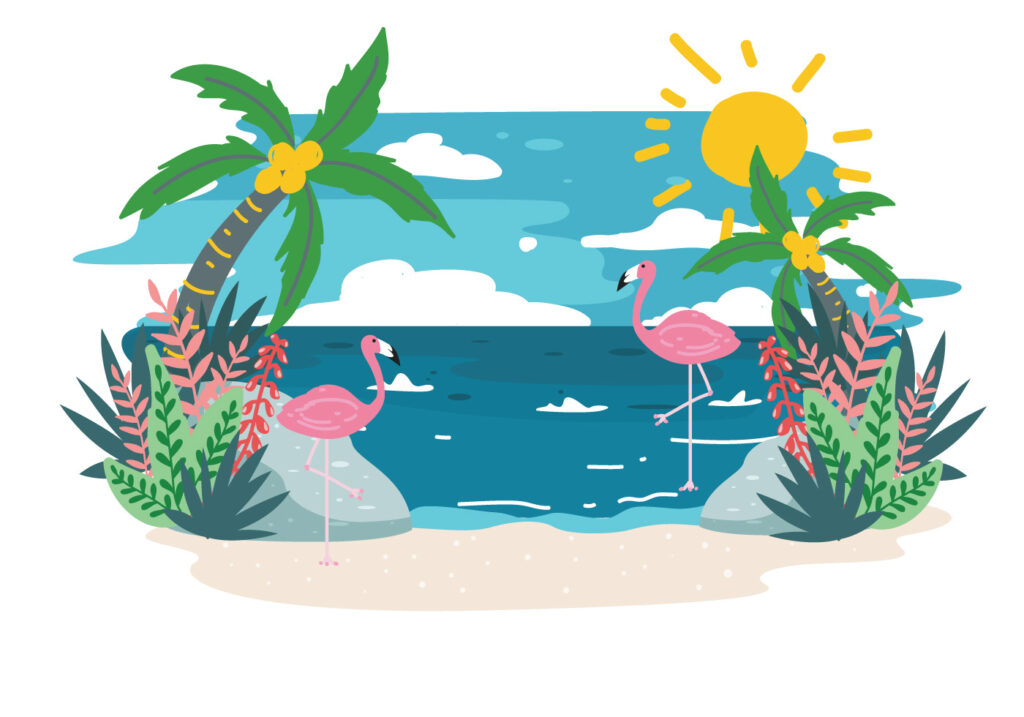
Autunno
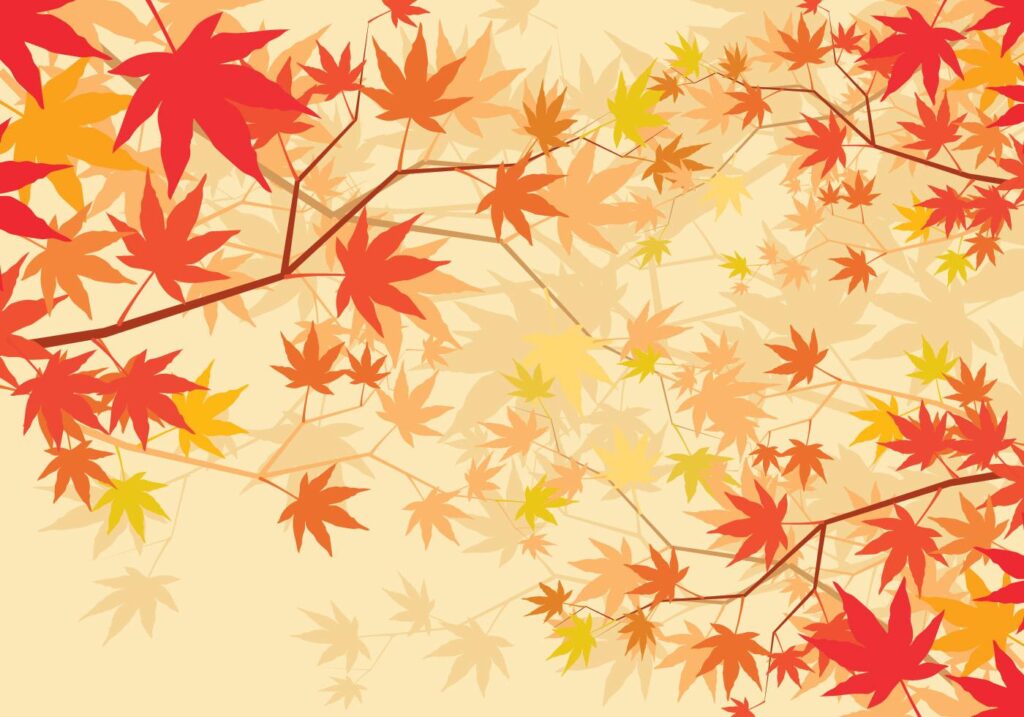
L’espressione “mi piace” e “non mi piace” / How to express “I like” and “I don’t like”
- Mi piace l’estate / I like summer
- Non mi piace l’inverno / I don’t like winter
- Mi piace la primavera / I like spring
- Non mi piace l’autunno / I don’t like autumn
Oggetti utili in campeggio / Useful objects for camping
Abbina le immagini all’oggetto / Match the images to the right object:
1)
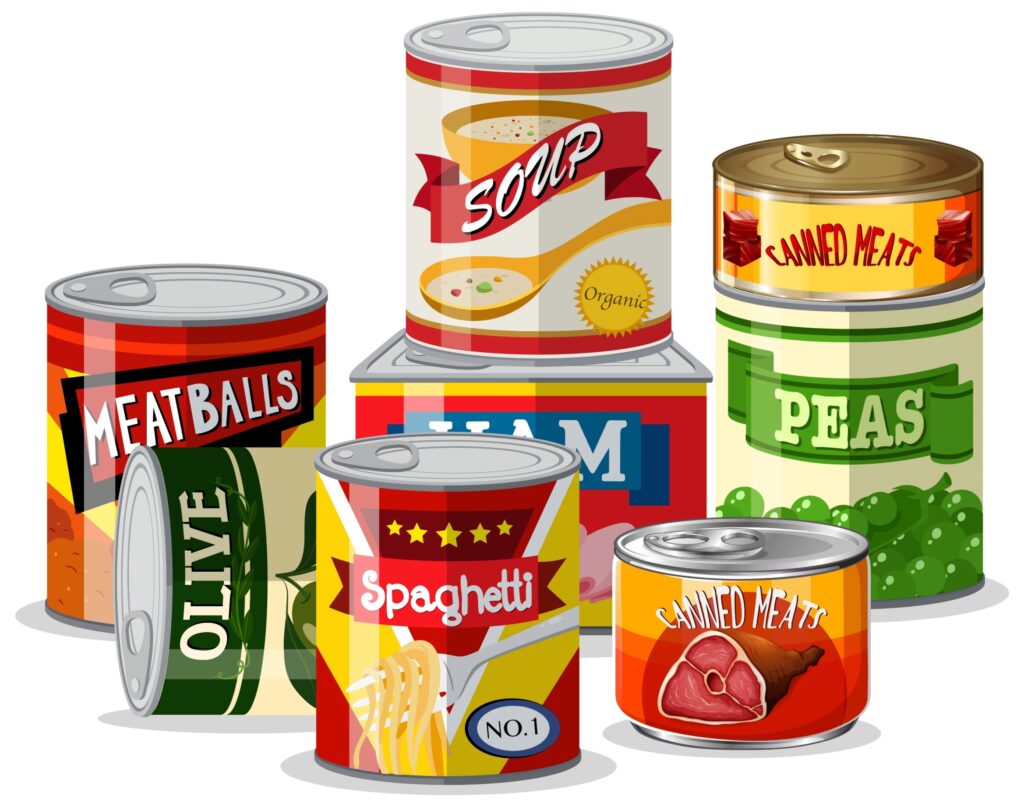
2)
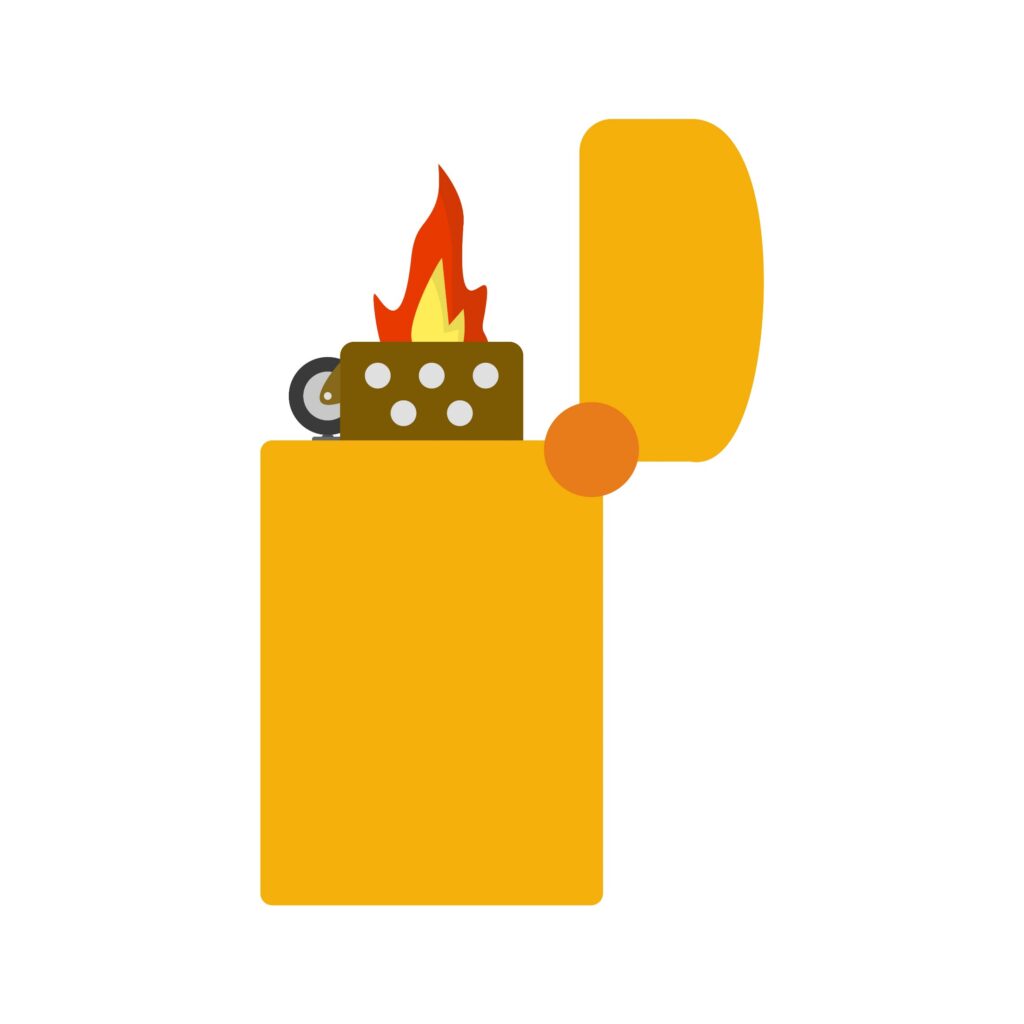
3)
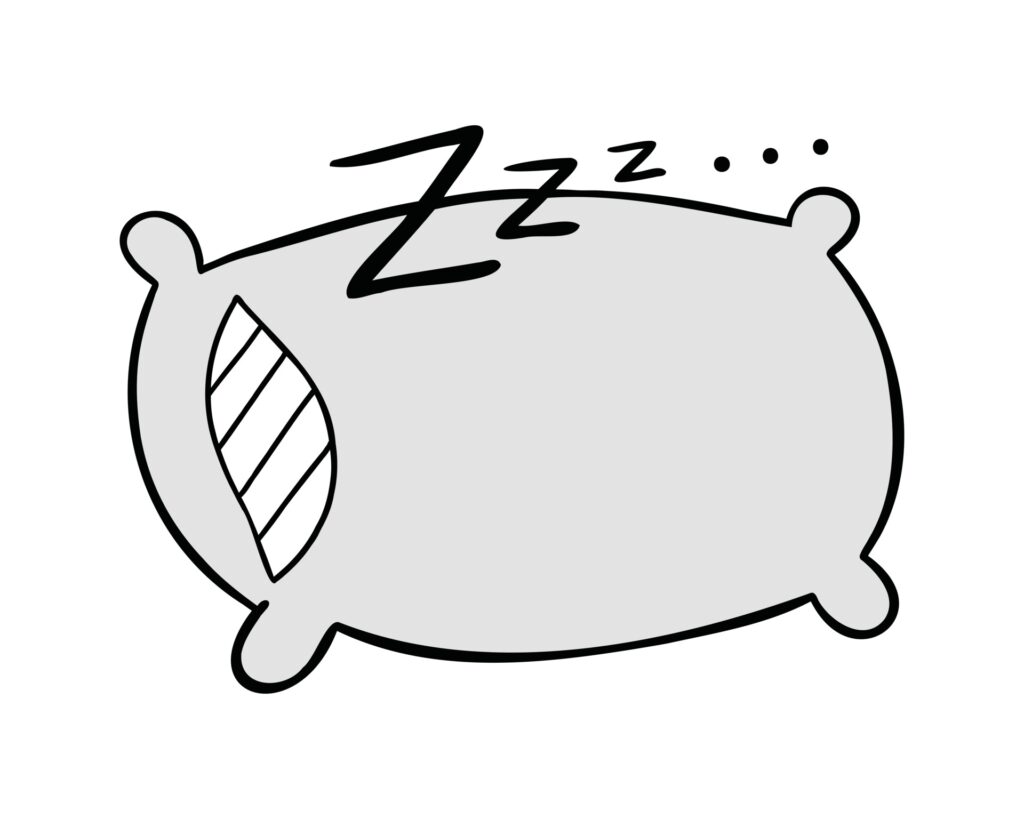
4)
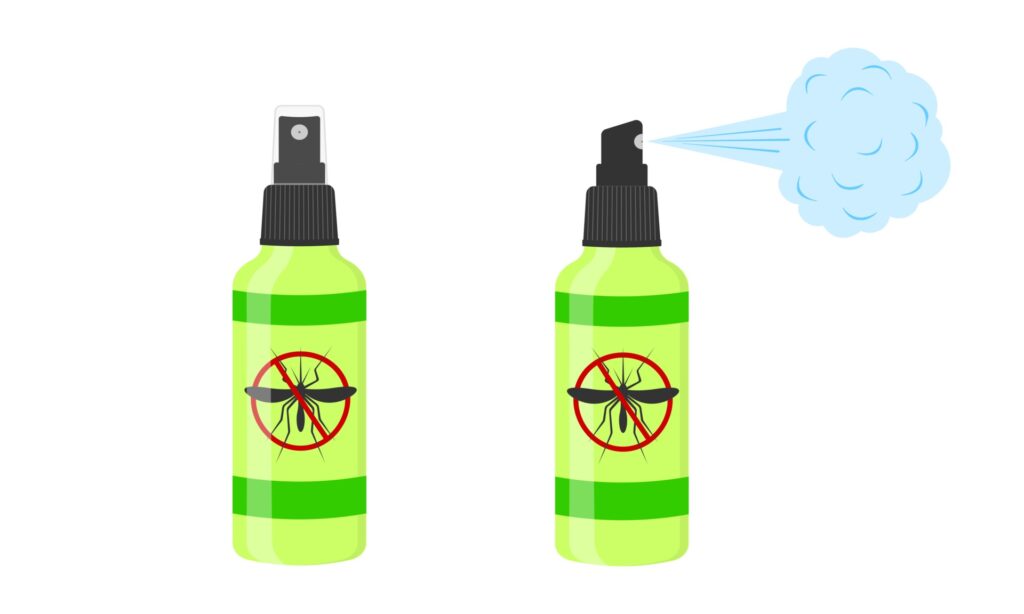
5)
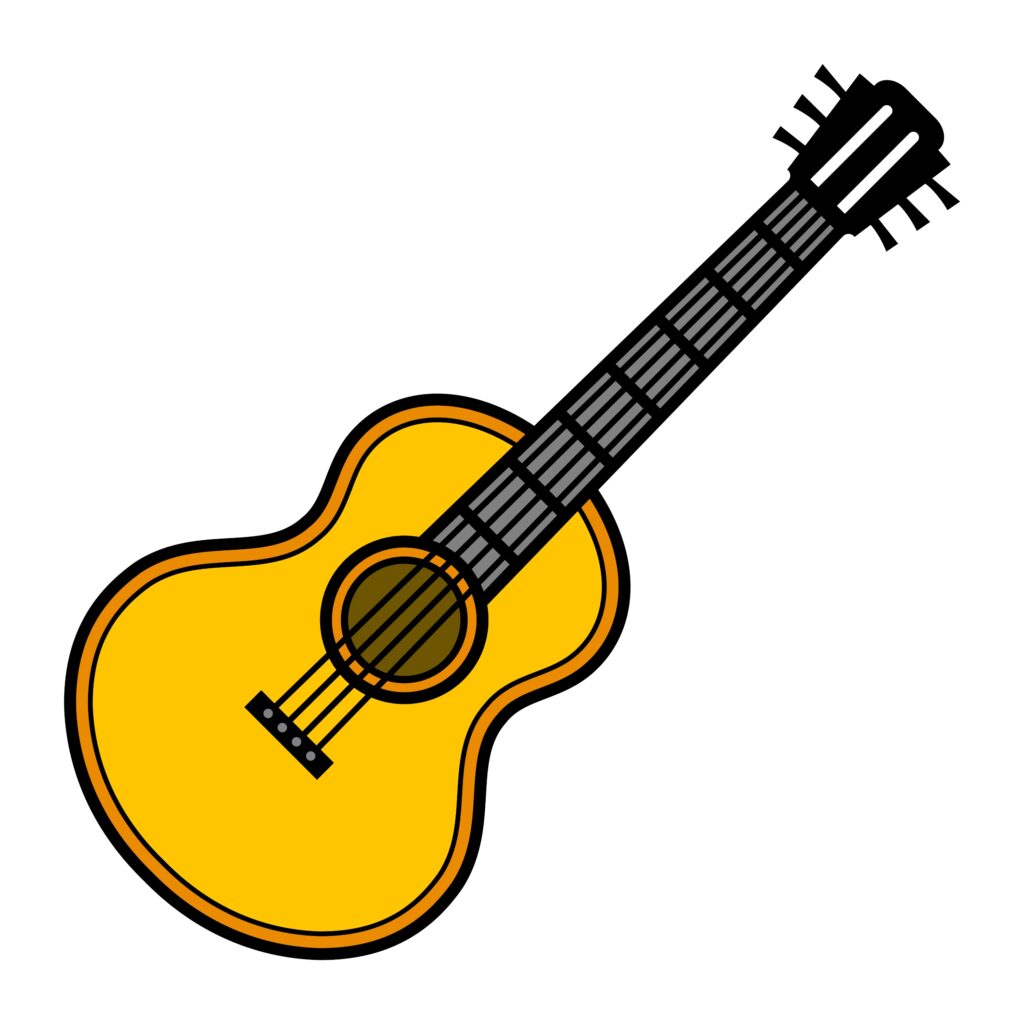
6)
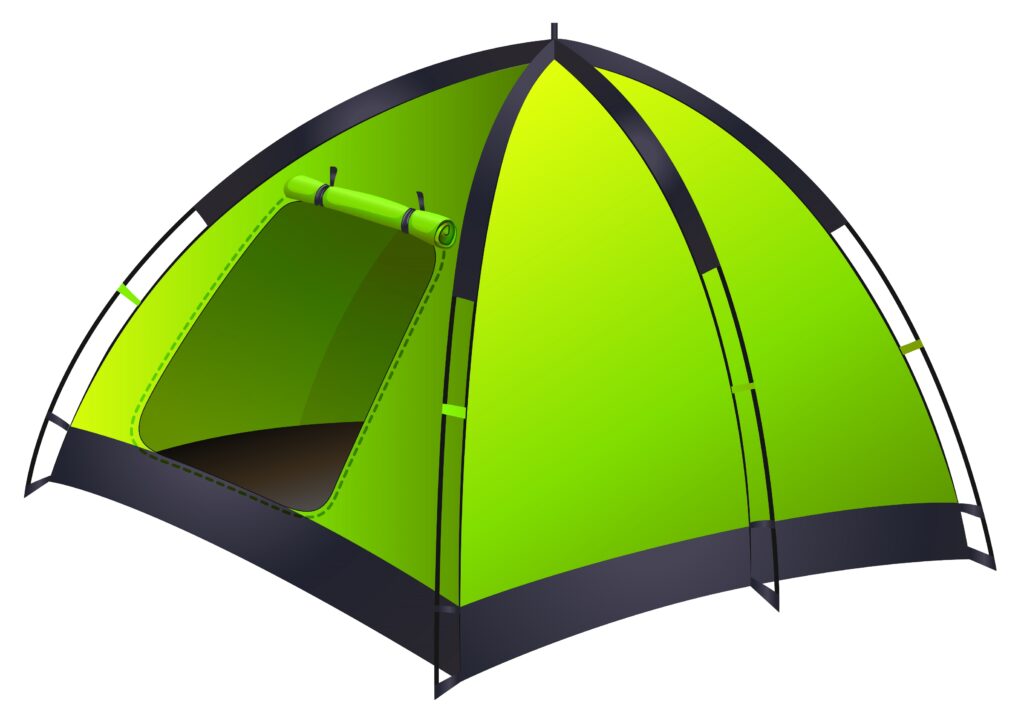
a) La tenda
b) La chitarra
c) Il cuscino
d) Lo spray anti-zanzare (o repellente)
e) Il cibo in scatola
f) L’accendino
Il plurale dei nomi / Plural form of the nouns
Generalmente in italiano il plurale dei nomi si fa modificando l’ultima vocale del nome / In Italian, you usually make nouns plural by changing the ending from one vowel to another:
Nomi femminili / Feminine nouns
- La vacanza – Le vacanze / The holiday – the holidays
- La scuola – Le scuole / The school – the schools
- La stella – Le stelle / The star – the stars
- La stagione – Le stagioni / The season – the seasons
- La nave – Le navi / The ship – the ships
- La famiglia – Le famiglie / The family – the families
- L’ora – Le ore / The hour – the hours
Nomi maschili / Masculine nouns
- Il bambino – I bambini / The child – the children
- Il cane – I cani / The dog – the dogs
- L‘albero – Gli alberi / The tree – the trees
- Il ragazzo – I ragazzi / The boy – the boys
- Il campeggio – I campeggi / The camping – the campings
- Lo studente – Gli studenti / The student – the students
- Il cibo – I cibi / The food – the foods

Put these singular masculine nouns in the plural form
EXAMPLE: – l’oggetto / gli oggetti
Il cuscino / I ……
L’accendino / Gli……
Il telefono / I …..
L’amico / Gli ….
Il limone / I ….
Il gelato / I ……
Put these singular feminine nouns in the plural form
EXAMPLE: – La vacanza / Le vacanze
La mamma / Le …
La casa/ Le …
La scarpa/ Le….
La chitarra / Le ……
La bevanda / Le …….
La tenda / Le ………
Cognates

How do you say “Autunno” in English?
Verbo “andare” / Verb “to go” (irregular verb)
Io vado / I go
Tu vai / You go
Lui, Lei va / He, She goes
Noi andiamo / We go
Voi andate / You go
Loro vanno / They go
The verb “ANDARE” (to go) is an irregular verb and it doesn’t follow the regular pattern of the verbs ending in –ARE
Verbo “venire” / Verb “to come” (irregular verb)
Io vengo / I come
Tu vieni / You come
Lui, Lei viene / He, she comes
Noi veniamo / We come
Voi venite / You come (plural)
Loro vengono / They come
The verb “VENIRE” (to come) is an irregular verb and it doesn’t follow the regular pattern of the verbs ending in –IRE
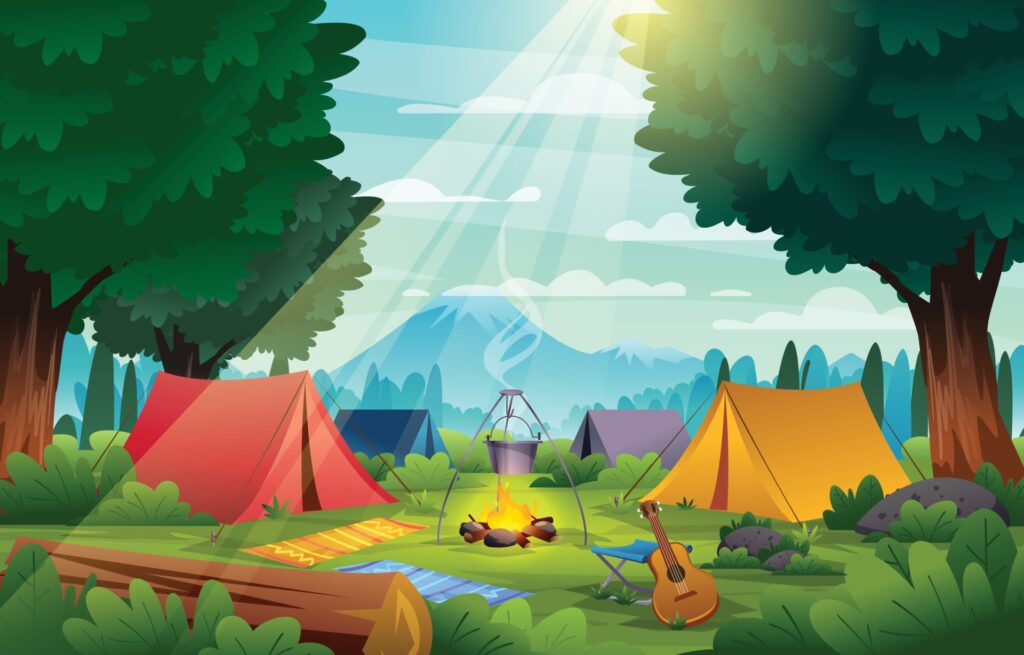
Preposizioni / Prepositions
- Io vado in montagna
- Tu vai al mare (a + il)
- Lei va in vacanza
- In estate, noi andiamo in campeggio
- Voi andate a Londra
- Io passeggio con il mio cane
- Noi parliamo delle vacanze estive (di + le)
- Io vengo con te
- Il mio cane è parte della famiglia (di + la)
- Il gatto dorme sulla poltrona (su + la)
- Hai le chiavi nella borsa? ( in + la)

In Italian, common prepositions are: di (of), a (at, to), da (from), in (in, to, into), con (with), su (on, over, on top of), per (for), tra/fra (between).
When a definite article follows a, da, di, in su, they combine to form a separate set of words
For more information about the lesson, answers to the excercises and to book a private lesson contact me at: info@italianwithsilvana.com